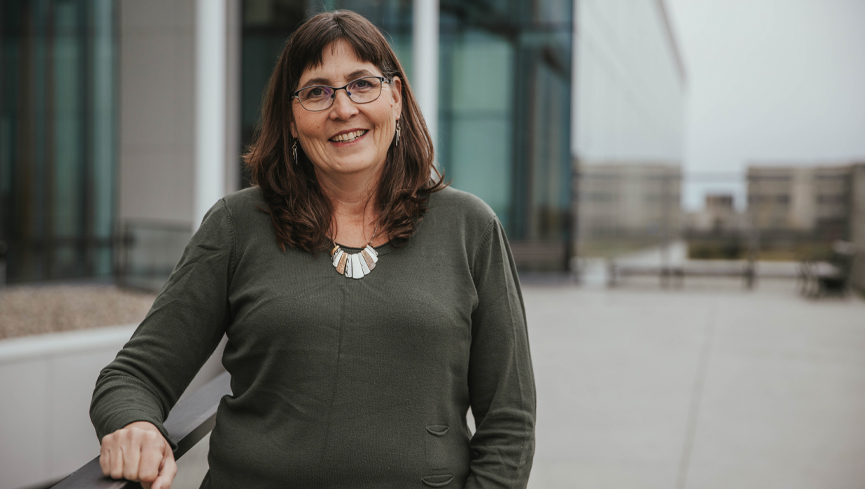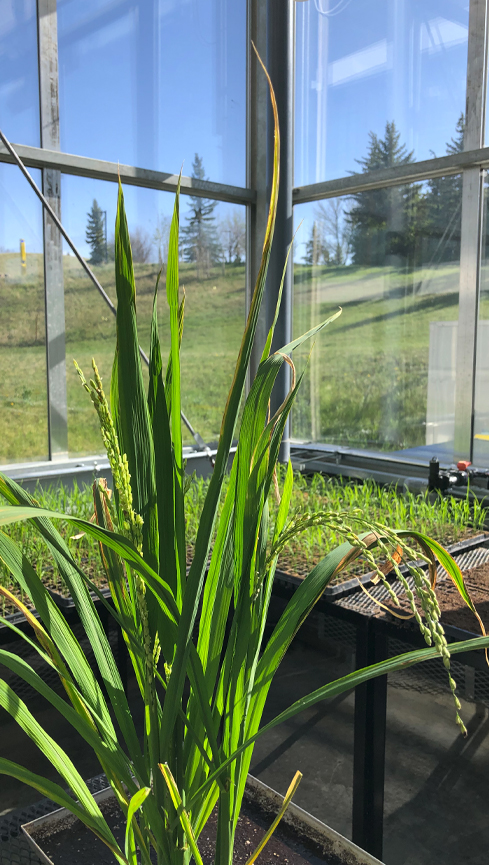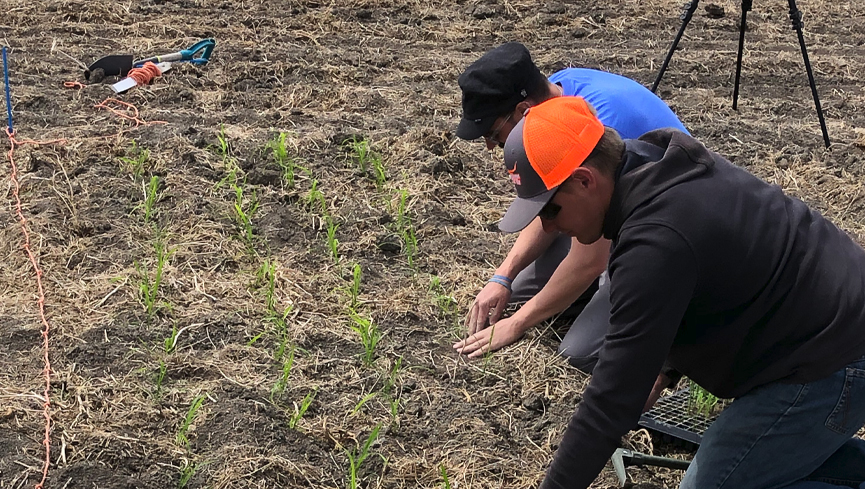Probably the last place one could imagine growing rice would be southern Alberta, but, as one University of Lethbridge researcher is finding out, it may not be outside the realm of possibility.

Dr. Michele Konschuh, a research associate in the Department of Biological Sciences, in collaboration with Galaxy Ag Ventures and Farming Smarter Association, is examining the potential for rice to be a value-added crop in this region. Rice is a gluten-free food staple that provides valuable byproducts like rice starch, protein and oil. Galaxy Ag Ventures is a Calgary-based company involved in strategic investment and product development in agri-foods. Farming Smarter is a farmer-led, not-for-profit organization based in Lethbridge dedicated to driving innovation at the farm level.
“One of the big questions is how you are going to grow rice in Alberta,” says Konschuh. “I wasn’t all that confident when they first approached me, but they did bring some technology from Korea called seed film cultivation (SFC). It’s essentially a biodegradable plastic layer that they attach the seed to and lay over moist soil.”

After a short-term pilot project this spring, the experiment has now moved to the field. With Galaxy Ag providing the funding and Farmer Smarter the land, technological expertise and equipment, a ULethbridge undergraduate student funded through Mitacs was hired to work on the project. Three methods for planting were used: the SFC technique, transplanting plants grown in a greenhouse, and direct seeding. The researchers also opted to try two types of irrigation: overhead pivot and subsurface drip.

“All three methods of planting have been successful so far,” she says. “What we don’t know is if we can get them all the way to rice seed production and maturation by fall. This is really early steps and the nice thing is that both B.C. and Ontario have successfully grown rice. So, we know rice can grow in Canada; what we don’t know is if rice can grow in Alberta because our conditions are a little bit different.”
Blackleg of potato focus of second project
Konschuh is also continuing her research into blackleg of potato. Blackleg, one of numerous seed-borne diseases that have been identified in potato production around the world, is caused by Pectobacterium and Dickeya bacteria.
Konschuh and her collaborators, Drs. Larry Kawchuk and Jonathan Neilson from Agriculture and Agri-Food Canada, are using a multi-pronged approach that includes an information campaign outlining best practices for seed growers and sharing findings from their research.
The researchers are also investigating rapid diagnostic tools available on the market and possibly developing new additional tools to detect blackleg early. Such tools would allow producers to obtain a diagnosis when they see a suspicious plant in the field instead of having to wait for laboratory results. In addition, the scientists are examining the potential of biocontrol agents — bacteriophages and endophytes.
The group has received additional funding from Results Driven Agriculture Research (RDAR) to expand the work to include genetic analysis of the pathogen causing blackleg and different potato varieties to determine if there’s a relationship between susceptibility in the host and aggressiveness in the pathogen.
“Research provides valuable information to producers and ag businesses to support their decision making,” says Konschuh. “Research also helps reduce risks associated with changes in agricultural practices.”
